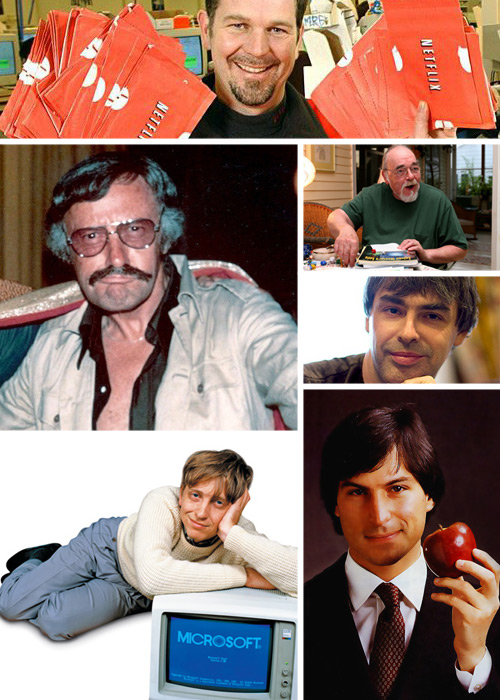
It’s a tired story by now that you should be nice to the nerds, so when they grow up and found a billion dollar software company, they won’t be inclined to crush your dreams with their vast wealth and power. At least that’s the gist of The Social Network. Turns out a natural curiosity can take a person pretty far, especially when it’s directed toward learning programming instead of rolling a d20 to see if that hot night elf will sleep with your character. When most professional geeks’ resume reads “A bunch of school and a few weekends fooling around with python”, we probably should start paying attention to those wonky friends who spend their weekends assembling computers. In that vein, here are some illustrative examples of gigantic geeks, whose geekdom eventually turned them into very rich, successful geeks who still kind of have trouble starting conversations at parties.
Stan Lee
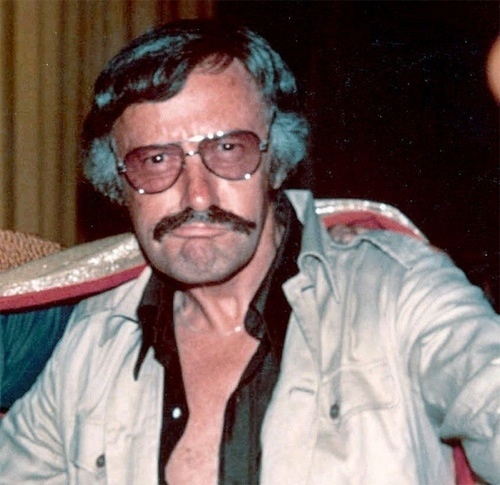
The creator of basically every superhero they’ve rebooted in the past 10-11 years, Stan Lee is famous for inventing most of the superheroes your average person would recognize. Despite his ubiquitousness in pop culture designed for people under 30, it’s easy to forget that Stan Lee got his start in what would later become Marvel Comics before the Japanese bombed Pearl Harbor. He has been working in comics since before many of your grandparents were out of diapers. And while there is still some debate as to whether he should get as much credit as he does (he probably Errol Flynn wasn’t the inspiration for Tony Stark.
Steve Jobs
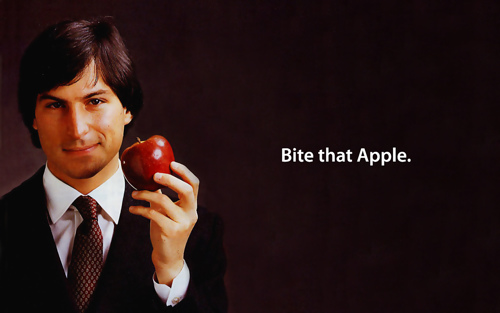
Okay, if you really don’t know who Steve Jobs was you’re probably older than Stan Lee and it’s only by sheer, slapstick coincidence that you managed to turn on a computer and access the Internet. But no such list of geeks becoming profitable would be complete without the man who turned Apple from a joke company in the 90s into one of the largest and most profitable companies on the planet. He changed how we listened to music. He changed how we used our phones. He changed how we used our…uh…tablets I dunno we’re still working on that one.
But Steve Jobs wasn’t born a billionaire. Even after getting accepted to Reed College, his prospects seemed bleak because he wasted all his time fiddling with them computation machines. At the time, computers were the obscure, exclusive purvey of universities and hobbyists. There was no “personal computer”– just kits hobbyists would buy and assemble. Displaying the arrogance that would become his hallmark later in life, Jobs decided he could do better than one of the best Universities on the planet and dropped out of Reed to focus on his true passion of tinkering with electronics. That geekiness led to jobs at Hewlett-Packard, Atari and eventually the Apple II, widely considered the first personal computer. Jobs was eventually booted out of Apple for being kind of an insufferable twat, only to return several years later after a successful stint at Pixar.
Bill Nye
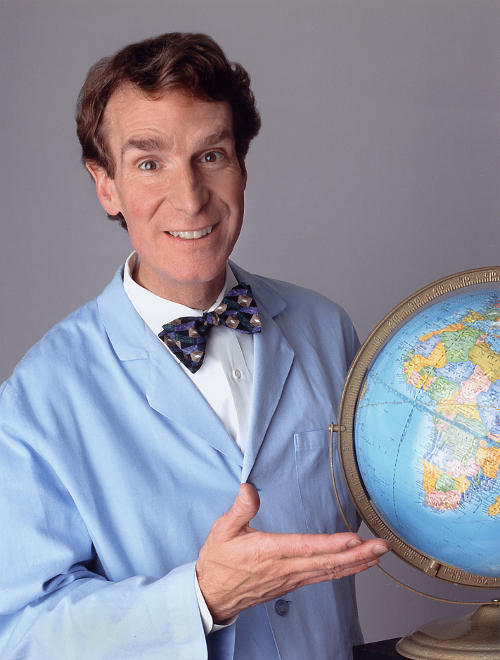
Probably the most-loved science entertainer behind Carl Sagan, and progenitor of that song that’s playing in your head right now, Bill Nye (his real name) had geekiness in his blood from day one. His mother was a codebreaker during WWII, and his father had a side hobby as a sundial enthusiast. Nye was a bright student, earned a Bachelors of Science from Cornell in 1977, and went on to work for Boeing, designing parts for the 747.
If that were all there was the the story, Bill Nye would be indistinguishable from any other engineer. No apparently, Nye’s gateway to fame came from being something of an entertainer, and also an insufferable geek. In his free time, he performed in a sketch comedy troupe in Seattle. The story goes that he kept correcting the cast when they mispronounced gigawatt as “jigawatt” which, as we all know, is a totally different unit of measurement for level of alarm produced by time traveling paradoxes. He was labeled “Bill Nye the Science Guy”, and the name stuck. Since starring in the children’s show we’re all familiar with, Nye has gone on to become a respected figurehead for science education.
Mark Zuckerberg
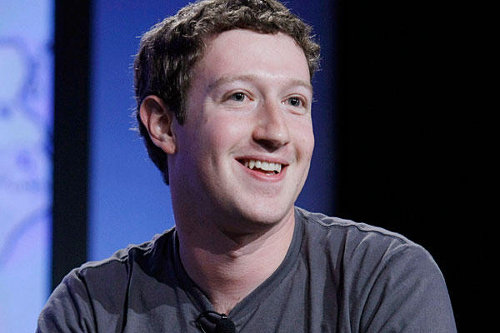
Famous as that guy in that movie played by that guy we used to call the poor man’s Michael Cera, Mark Zuckerberg is the founder and CEO of Facebook, and the youngest billionaire in the world. Facebook was famously created in Zuckerberg’s dorm room as a way for Harvard students to share photos and contact information. It quickly grew into the largest social network on the planet, quickly dwarfing rivals MySpace and Friendster (haha, remember embedded songs?).
Zuckerberg himself started out as an uber geek. Before he even started getting hair in strange places, he was learning Atari BASIC programming and receiving regular programming tutoring sessions. By himself, he wrote a primitive instant message service just a year before AOL (with their thousands of employees) released AIM. When the rest of us were playing Super Mario Bros. and Duck Hunt, Zuckerberg was having friends over to draw pictures, which he later integrated into video games. Before he even left for college, he was receiving offers of employment from Microsoft and AOL. So basically he did everything most people aspire to in a lifetime before he could legally buy porn. Oh and then he founded Facebook.
Gary Gygax
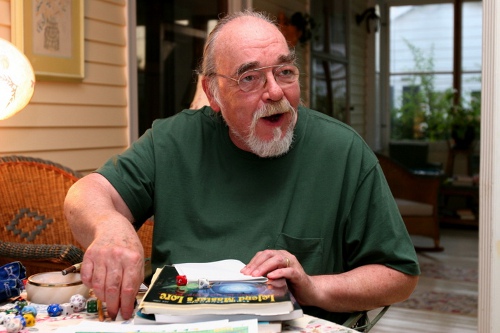
While Gary Gygax wasn’t a computer genius and didn’t write comics, he’s nonetheless one of the most influential characters in geek history. If you don’t know his name, congratulations on probably not being a huge geek, enjoy all those women you presumably get! To the rest of us, Gygax is forever remembered as the creator of Dungeons & Dragons, which is pretty much hands-down the geekiest thing on the planet. Even in a time when video games are becoming more main-stream, saying you play Dungeons & Dragons suddenly time-warps the room back to the 1980s and everyone will start screaming NEERRRRD like Ogre from Revenge of the Nerds.
As you can probably guess, the creation of Dungeons & Dragons could only come from a mind absolutely steeped in sci-fi and fantasy. Gygax voraciously consumed every fantasy and pulp novel he could get his hands on throughout his childhood. While working as an insurance underwriter, he worked with other enthusiasts to found was has basically become the underpinning of the entire table-top gaming industry. Dungeons & Dragons was a natural combination of his fascination with both wargames and the fantasy genre.
George Lucas
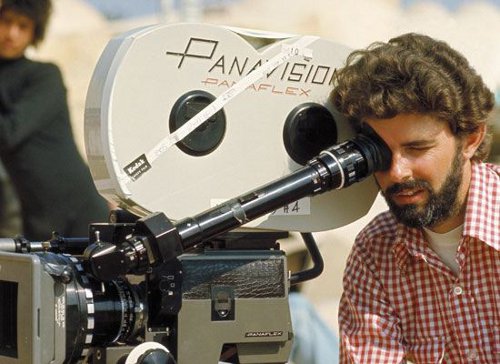
Love him or hate him, there’s no deny that George Lucas defined — then ruined — your childhood, depending on how much rancor you have for the prequels. Despite what you may think of the man, there is no denying that, especially in his earlier years, the man was a legitimate film geek. Back before blockbusters were a thing and film schools were rare to non-existent, Lucas would sneak away with friends to watch avant-garde film showings with bohemians and beatniks. After attending film school at USC (one of the first in the country), he went on to craft the Oscar-nominated American Graffiti.
With just three films, THX 1138, American Graffiti, and Star Wars, Lucas established himself as one of the biggest figures in Hollywood, something that usually takes an entire career. And these films would have never been possible if Lucas hadn’t been a huge geek when it came to film, special effects and science fiction in general. Before Lucas, science fiction “epics” were a laughably cavalcade of cheese effects and saucers on strings. Without his eye for film, love of cheesy sci-fi and semi-reckless antics to get the best effect possible, film would not be what it is now. Though some might argue that’s not a good thing.
Bill Gates
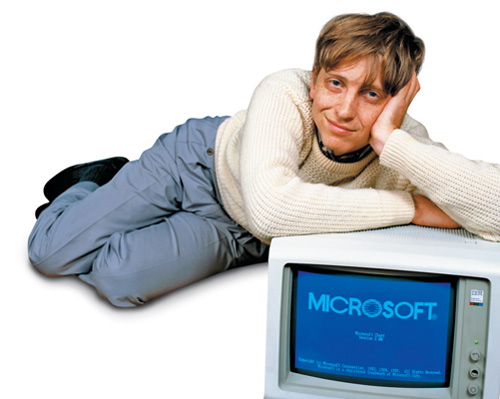
Of course no list of geeks would be complete with the man who essentially defined the computer as we experience it now. One of the wealthiest people on the planet, Gates’ net worth is pegged somewhere in the $50 billion range. Windows is the one of the most used and definitely the most familiar way in which most of the planet interacts with their computers. This might be quickly changing as what “your computer” is now likely includes a phone and maybe some sort of tablet or e-reader, but there’s no denying that Gates is one of the most successful geeks in history.
Originally planning to be a lawyer, Gates descent into geekdom began at an early age when his prep school purchased a block of time on a GE computer for use by the students. Gates was hooked almost immediately, fascinated by a machine that could so clearly and instantly demonstrate progress and achievement. He event went so far as to team up with fellow students to hack the machine into allowing them extra computer time. Later, Gates and friends were hired to find bugs in the computer’s programming, write a payroll system, and write a system for matching students with classes—the latter of which Gates hacked to place himself into mostly-female classes. After a brief stint at Harvard, Gates dropped out to found Microsoft (at the time “Micro-Soft”) with Paul Allen.
Jeff Bezos

Unless you frequent business journals, you’ve likely never heard of Jeff Bezos. Unless you live under a rock, however, you’ve definitely used his website. It’s a little obscure thing called Amazon.com, only the largest online retailer and, notably, one of the few dot-coms to make it through the internet holocaust. Not only that, Amazon has repeatedly defied predictions by growing continuously when the rest of the economy has teetered between “kinda okay” and “holy sweet Jesus grant us mercy from the firestorm”.
Bezos wasn’t one of those businessmen who got his MBA and ended up as the head of a company, he was a straight-up geek from day one. The son of an engineer, Bezos attempted to disassemble his crib with a screwdriver as a toddler. That’s right, at an age when most of us could barely keep our bodily fluids in order and had to be barred from eating too much sugar lest we destroy the house, Bezos was staging elaborate prison breaks. He also rigged an alarm system to keep siblings out of his room and converted his parents’ garage into a laboratory. The fact that this little child genius/terror leveraged his geekiness to found one of the most successful online companies shouldn’t come as a surprise.
Larry Page
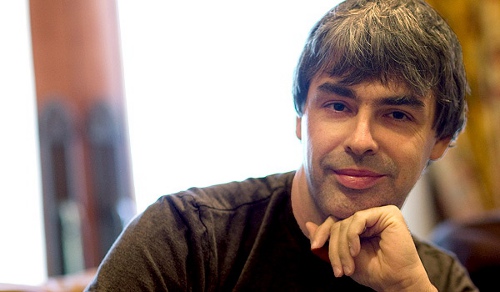
One of the co-founders of the home page of virtually everyone outside of China, Larry Page teamed up with Sergey Brin to found Google in 1998. In an era where there was actually a choice of what search engine to use (remember Dogpile?) Google managed to straight out-compete every last one of them to become basically the internet. Its search algorithms are famously well-honed to fetch the best results, to the point where even casual computer users laugh with derision when someone says “Let me search Bing”.
Page’s geekdom manifested at an early age; it probably helped that both of his parents were acclaimed computer scientists and that his childhood home was “constantly strewn with Popular Science“. His older brother taught Page to use a screwdriver at a young age, a decision nearly everyone regretted immediately, as page began taking everything in the house apart to see how it worked. As early as age 12, his geekiness was already beginning to manifest as a desire to start a company and grind out some profit. At the age most of us are just starting to find Saturday morning cartoons a little infantile, Page was already thinking a regular 9 to 5 job working for someone else was a little below his maturity level.
Reed Hastings
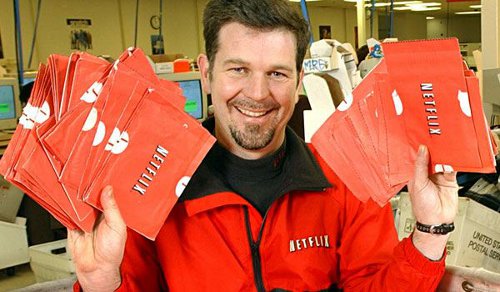
Just so we all don’t start feeling terrible about what we’ve failed to accomplish, Reed Hastings provides an inspiring story of a hippie whose natural inquisitiveness led to geekiness developing later in life, and eventually turning into a wildly successful company known as Netflix. If you’re under the age of 30, Hastings is the reason you haven’t paid for cable in three years. If you are still paying for cable…uh would you mind recording some HBO for me I need a copy of The Wire to self-righteously push in my friends’ faces.
Hasting’s geekdom is unique among internet entrepreneurs because it developed later in his life. Sure he got a degree in mathematics from Bowdoin College, but there aren’t any stories of him disassembling a computer and rebuilding into Optimus Prime at age 6. After college, Hastings joined the Marines and slowly began to realize his natural inquisitiveness and critical thinking weren’t well-suited to an outfit that dictated how beds were made and bags were packed. He left the Marines and joined the Peace Corp slowly discovering a curious, entrepreneurial bent that led him to pursue a Masters in Computer Science.
His long hours of soul-searching and getting in touch with his inner geek while in the Peace Corps served him well, and he quickly made a name for himself at Adaptive Technology, his first position after graduate school. A clever program for hunting down software bugs allowed him to leave Adaptive in 1991 to found Pure Software. After successfully growing the company (and asking twice to be fired because he was disappointed with his own mediocrity), Hastings left and founded Netflix, building a powerful recommendation engine in the process and revolutionizing how we all watch TV.